The Northern Song Dynasty (北宋, Běi Sòng, 960-1127 CE) following the Five Dynasties and Ten Kingdoms period (五代十国), was collectively referred to as the Song Dynasty (宋朝, Sòng) with the Southern Song Dynasty (南宋, 1127-1279 CE). It stood as one of the most illustrious periods in Chinese history, renowned for its stability and economic, cultural, and artistic prosperity.
We will divide our discussion of Northern Song into two separate articles, focusing on its history and remarkable achievements respectively. This article will primarily center around the historical trajectory of the Northern Song Dynasty, detailing its rise and fall.
Foundation and Unification of Central Plain
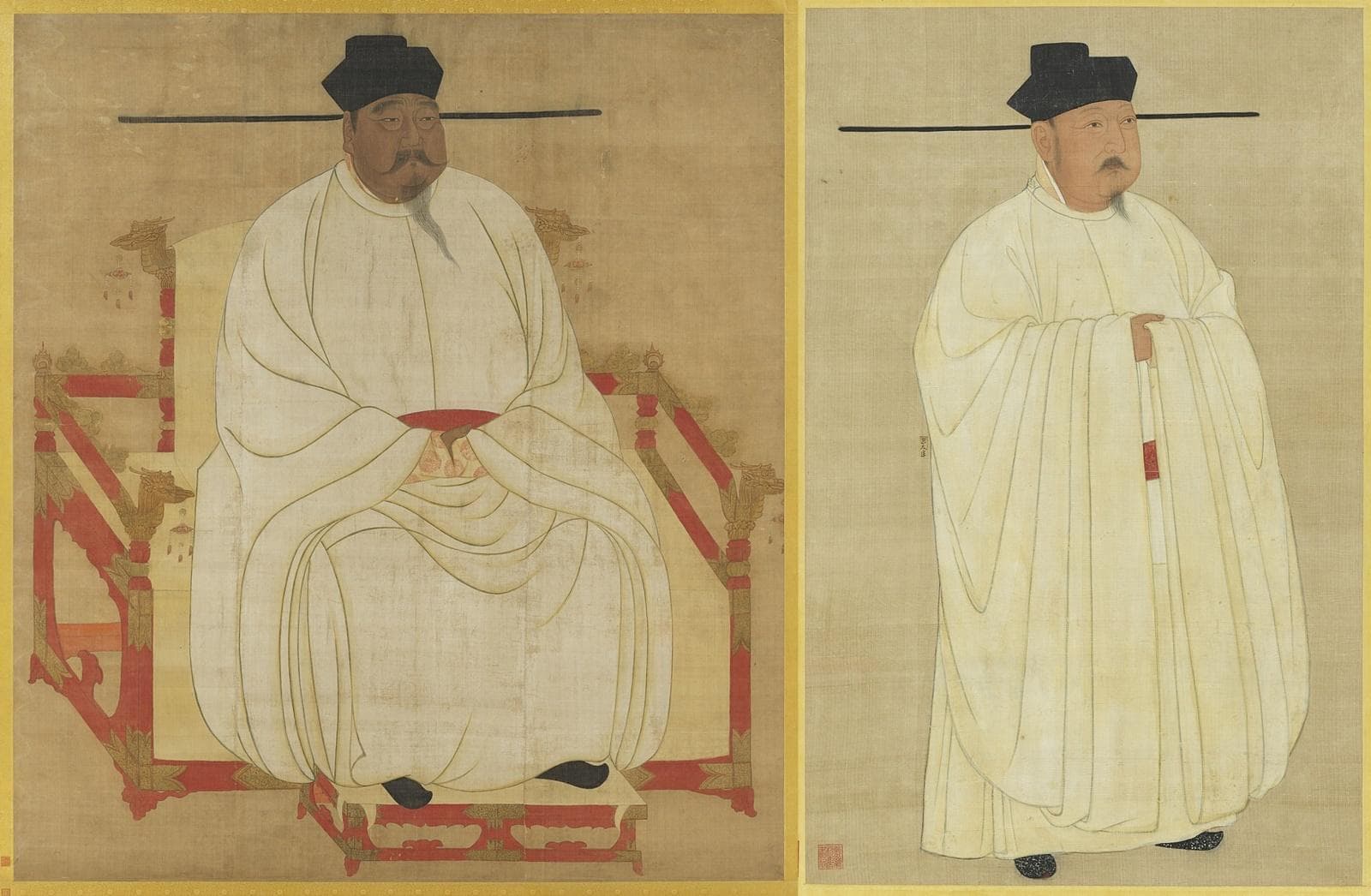
Portraits of Emperor Taizu of Song (left) and Emperor Taizong of Song (right)
Founding of Song by Emperor Taizu
During Later Zhou (后周) of Five Dynasties (五代), Zhao Kuangyin (赵匡胤) served under Guo Wei (郭威) and achieved military feats that garnered him the trust and favor of Chai Rong (柴荣), Emperor Shizong of Later Zhou (后周世宗).
Emperor Shizong's young son, Chai Zongxun (柴宗训), succeeded to the throne in 959 CE. In 960 CE, the northern borders reported an invasion by a combined force of the Liao Dynasty (辽) and Northern Han (北汉). Zhao Kuangyin was ordered to lead the imperial guards to confront the invaders. As Zhao marched to Chenqiao Station (陈桥驿) outside of Kaifeng (开封), his subordinates "cloaked him in a yellow robe" (黄袍加身) and declared him emperor. This event was known as the Chenqiao Coup (陈桥兵变). Subsequently, Zhao Kuangyin, Emperor Taizu of Song (宋太祖), seized power without bloodshed, establishing the Northern Song Dynasty, with Kaifeng still the capital.
During his rule, Emperor Taizu first quelled uprisings from the remnants of Later Zhou's officials, consolidating Northern Song's rule. He then followed a strategy of "conquering the south before the north" (先南后北) to unify the nation.
Between 963 and 974 CE, Northern Song successively took Jingnan (荆南), Later Shu (后蜀), Southern Han (南汉), and Southern Tang (南唐). At this point, only Wuyue (吴越) and Qingyuan Jiedushi (清源军节度使) Chen Hongjin (陈洪进) remained as subdued forces in the south.
Emperor Taizu also established a reserve fund hoping to regain the Sixteen Prefectures of Yanyun (燕云十六州) from Liao. He launched two campaigns to conquer Northern Han but both failed.
Unification under Emperor Taizong
In 976 CE, while preparing for another campaign against Northern Han, Emperor Taizu unexpectedly passed away. His younger brother, Zhao Jiong (赵炅), ascended the throne as Emperor Taizong (宋太宗). Taizong's early focus was on consolidating governance and pausing unification efforts.
In 978 CE, both Wuyue and Chen Hongjin voluntarily surrendered. In 979 CE, Taizong led an expedition against Northern Han, which surrendered soon after. This marked the end of the fractured landscape since the late Tang Dynasty, bringing the entire Central Plain region under unified rule.
Taizong launched an attack against Liao following the fall of Northern Han, but the attempt failed. In 986 CE, Taizong sent troops of two hundred thousand men against Liao. Despite initial victories, the Song forces were ultimately defeated. Since then, the strategic relationship with Liao transitioned from offense to defense.
Emperor Taizong himself was cultured and enjoyed poetry and literature. The government emphasized cultural pursuits, fostering a reverence for education. In line with Tang's administrative model, Emperor Taizong established a centralized system and implemented reforms to concentrate power in central and local governance, centralizing military, financial, judicial, and appointment powers to counter the issue of excessive power in regional commanders and weak central authority. While these measures strengthened central control and governance, they also led to unintended consequences such as weakened military strength, inefficient administration, heavy burdens on the people, and a decline in the martial spirit of society, laying the groundwork for later crises.
Stability, Struggles, and Reforms
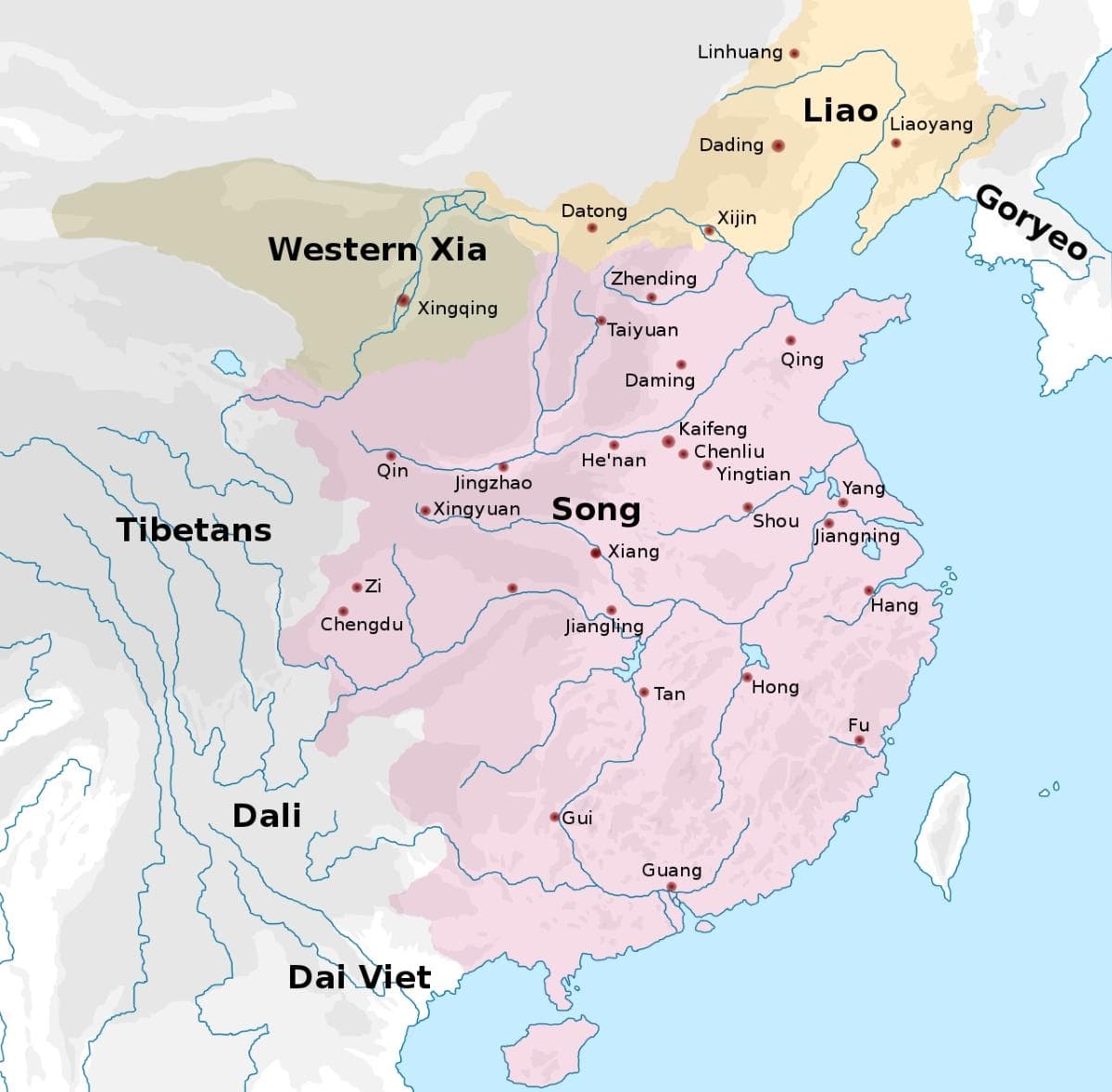
Map of the Northern Song Dynasty at its greatest extent in 1111
Period of Stability and Prosperity
Emperor Zhenzong (宋真宗) succeeded Emperor Taizong in 997 CE. He pursued diligent governance, leading Northern Song into a time of stability and prosperity.
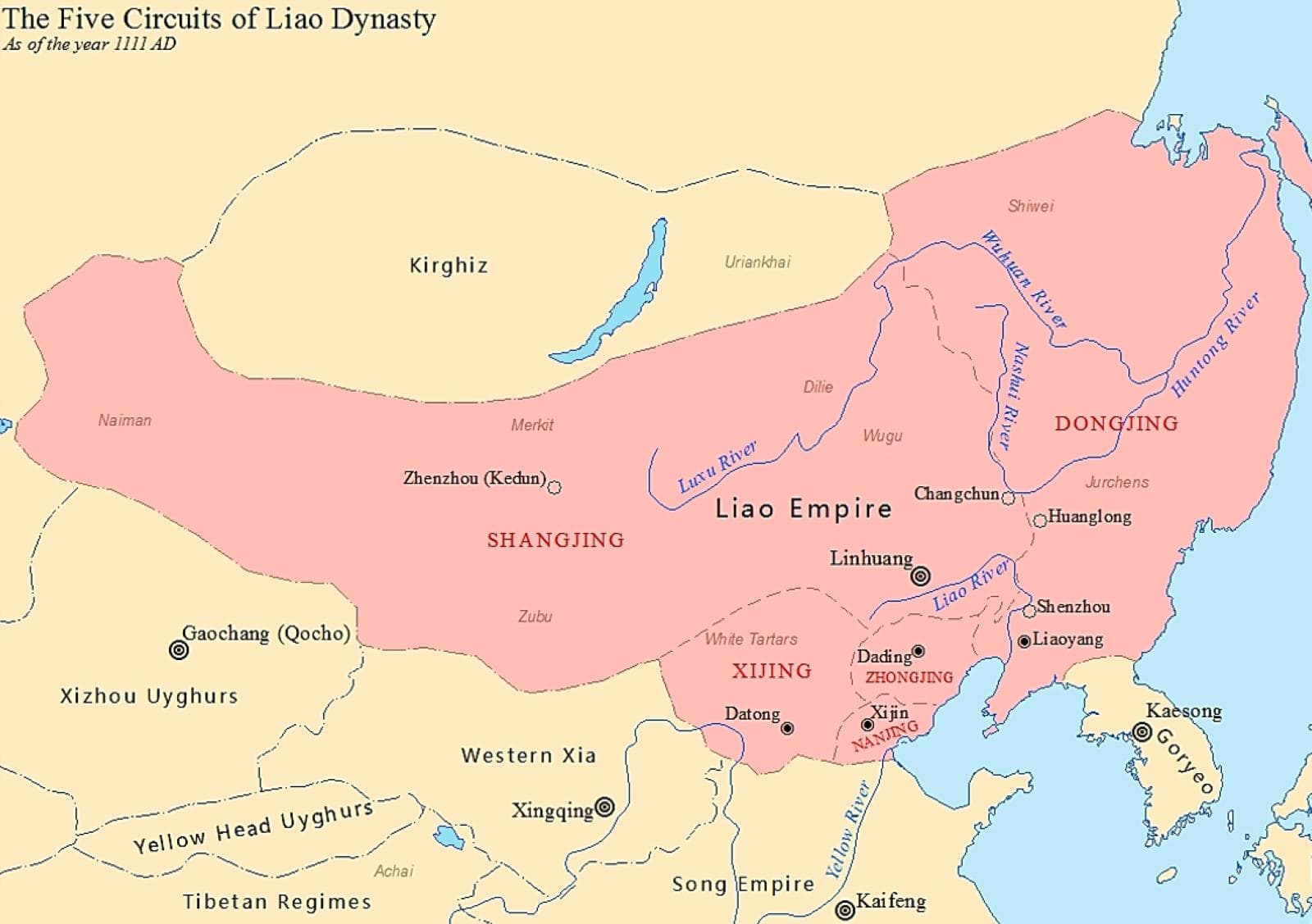
Map of the Liao Dynasty in 1111
However, Liao frequently engaged in raiding and plundering along the border regions. In 1004, this escalated into a large-scale invasion. Liao sent forces southward, breaching multiple provinces and deeply penetrating Song territory. Faced with great concern, Emperor Zhenzong initially contemplated moving the capital southward in retreat. But after counsel and persuasion, he decided to personally lead the troops.
Emperor Zhenzong arrived at the frontline in Chanzhou (澶州), boosting the morale of Song soldiers and invigorating their spirits. As Liao recognized the changing situation, they expressed interest in negotiations. Zhenzong swiftly agreed, leading to the Chanyuan Treaty (澶渊之盟) where Northern Song agreed to pay a fixed annual tribute to Liao in exchange for peace.
This ended over four decades of hostility between the two states. Song and Liao adopted a brotherly relationship and maintained a relatively peaceful coexistence until the late Northern Song Dynasty.
External Threats and Initial Reform Attempts
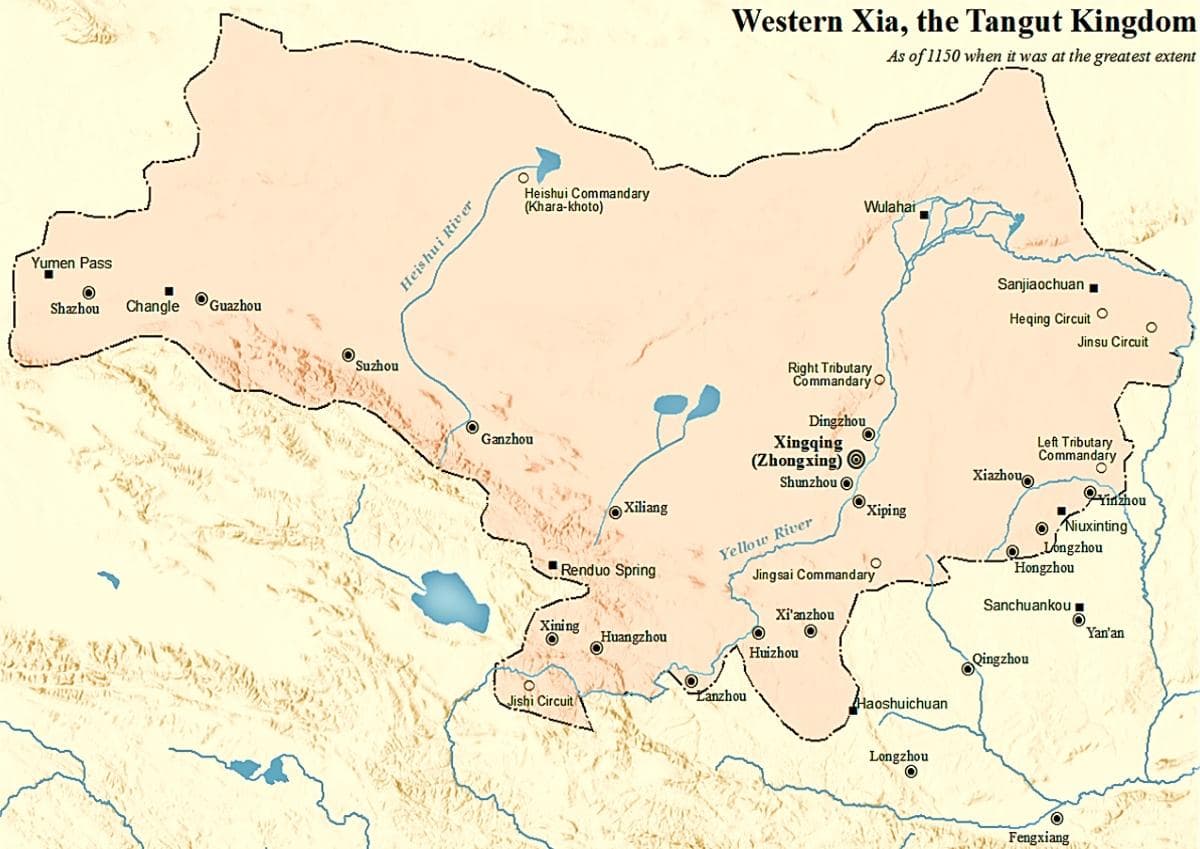
Map of Western Xia in 1150
After Emperor Renzong (宋仁宗) succeeded to the throne, the situation in the northwest grew increasingly tense. In 1038, Li Yuanhao (李元昊) declared himself emperor, establishing Western Xia (西夏). This triggered several years of warfare between the Northern Song and Western Xia, with Song forces suffering repeated defeats. By 1044, both sides were exhausted, leading to the Qingli Treaty (庆历和议). Li Yuanhao nominally acknowledged Song's authority and would receive annual tributes from Song, thereby ending the hostilities. This period also saw Liao forces pressuring Song for additional tributes and concessions.
During Emperor Renzong's reign, the bureaucratic structure expanded extensively, leading to administrative inefficiencies. To sustain these growing expenses, the government increased taxes, burdening the populace. This, along with natural disasters and peasant uprisings, created social turmoil. In addition, Song appeared weak against Western Xia and Liao's threats, exposing long-standing military vulnerabilities.
To overcome these crises and enhance the central authority, some within the ruling elite began considering reforms. The most notable of these efforts was the Qingli Reforms (庆历新政) led by Fan Zhongyan (范仲淹) and Ouyang Xiu (欧阳修).
Between 1043 and 1044, a series of decrees aimed to reform bureaucratic selection and promotion practices were issued. These reforms primarily focused on rectifying administrative mismanagement and aimed to improve the autocratic rule of Song. However, they also challenged the interests of entrenched bureaucrats and elites, who vehemently opposed them.
Accused of "factionalism" and subjected to malicious attacks and rumors, Fan Zhongyan and others were sent to local positions after the border situation stabilized. The reforms were cut short.
Reforms and Factional Struggles
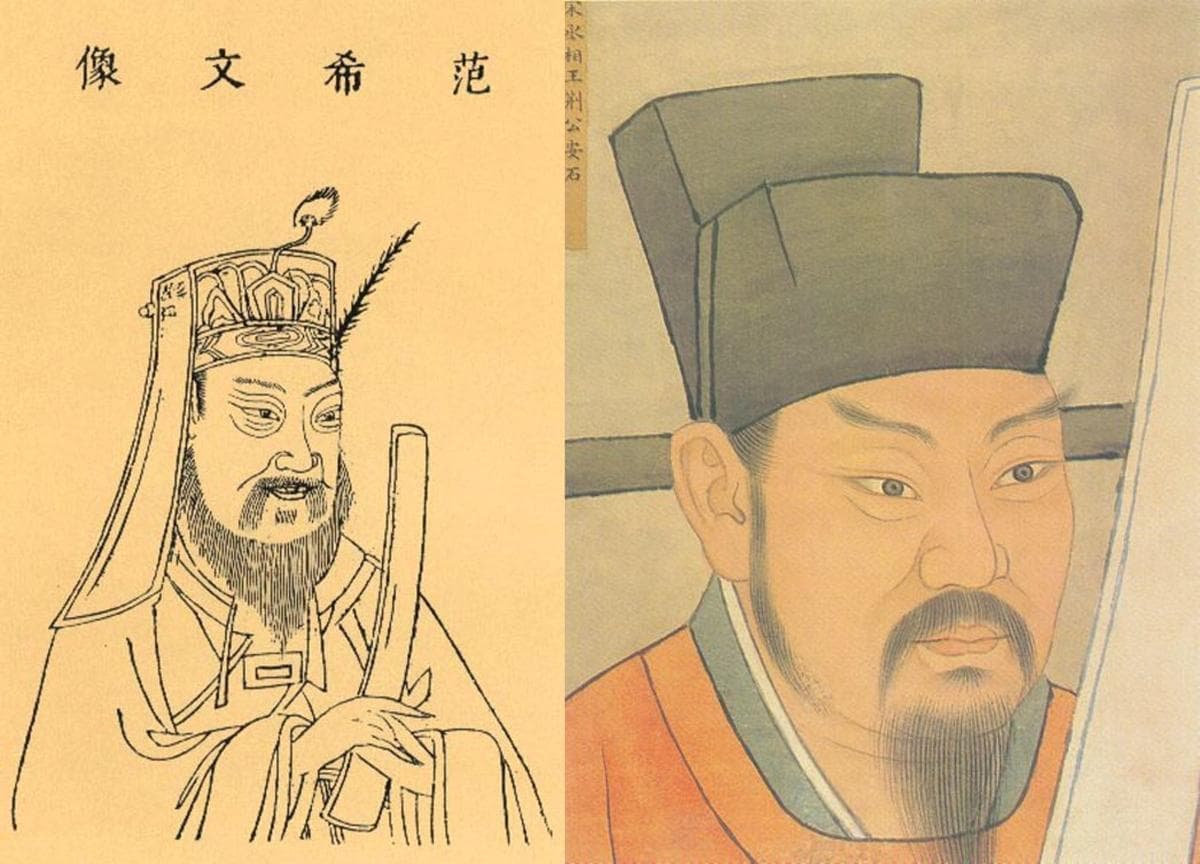
Portraits of Fan Zhongyan (left) and Wang Anshi (right)
Nevertheless, sporadic peasant uprisings and mutinies among lower-ranked soldiers continued to occur. The internal pressure for reforms within the ruling elite persisted and grew stronger.
From Emperor Renzong to Emperor Shenzong (宋神宗), society stabilized, the economy prospered immensely, and culture reached its zenith.
In 1067, Emperor Shenzong ascended the throne with a resolve for reform. In 1068, Wang Anshi (王安石) was summoned to Kaifeng to lead the reform efforts. The New Policies (新法) had two main aspects: enriching the country (富国) and strengthening the military (强兵).
Although the New Policies objectively benefited peasants and small landowners, they restrained the power of high-ranking officials, landlords, and wealthy merchants. These efforts ultimately failed, leading to power struggles within the bureaucratic elite that lost the essence of the reforms. The conflicts between the reformists and conservatives continued until the fall of the Northern Song Dynasty.
During Emperor Zhezong's (宋哲宗) reign (1077-1100), Empress Gao, who initially held actual power, abolished the New Policies and reformist figures were banished. After Emperor Zhezong took full control, he reinstated reformist Zhang Dun (章惇) as chancellor and restored the New Policies. However, the continuous division within the court greatly affected these reforms, and internal conflicts intensified. The rule of Song fell into a deeper crisis.
The End of Northern Song
Peasant Uprisings
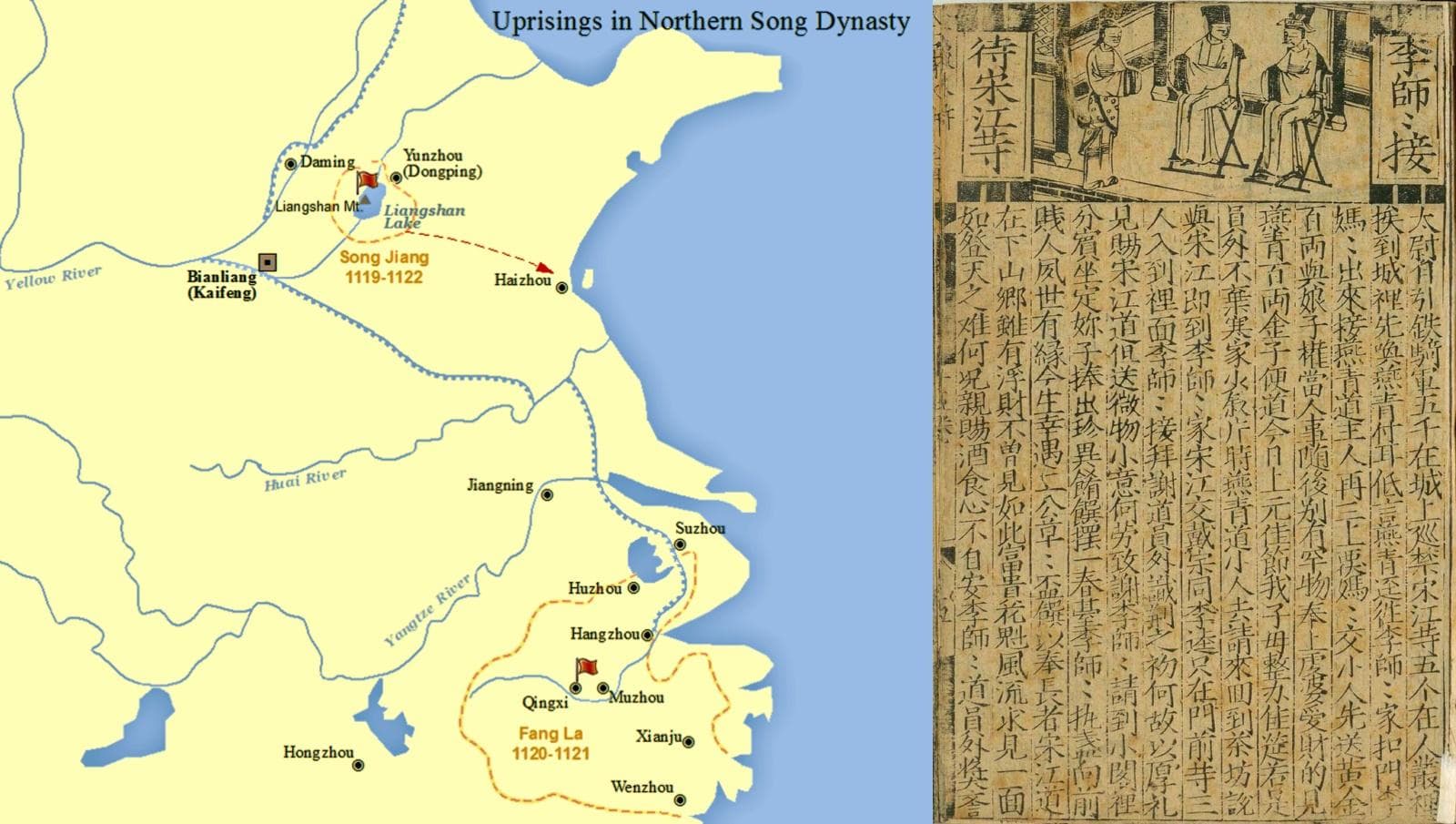
Left: map of Song Jiang and Fang La's uprisings. Right: a page from a block-printed version of the novel Water Margin.
Upon succeeding to the throne in 1100, Emperor Huizong (宋徽宗) aimed to reform governance but gradually became negligent in his duties, contributing to the downfall of Northern Song.
Due to widespread corruption among officials, people rose in rebellion.
The burden of heavy taxes led to armed resistance among peasants and fishermen in Liangshan Marsh (梁山泊), led by Song Jiang (宋江). This uprising endured for about four to five years before being formally declared in 1119. They then moved to the Hebei (河北) and Shandong (山东) regions. In 1121, Song Jiang's rebel forces were cornered by Song troops in Haizhou (海州), and they surrendered in a desperate situation. This was also the source of the story of Water Margin (《水浒传》), one of the Four Great Classical Novels of China (中国四大名著).
Meanwhile, Fang La (方腊) led an uprising in Qixian Villag (七贤村, present-day Anhui's She County 安徽歙县) in 1120. This led to the establishment of a peasant regime spanning six provinces and 52 counties, including Jiangsu (江苏), Zhejiang (浙江), Anhui (安徽), and Jiangxi (江西). Although impactful at the time, the uprising failed the following year, and Fang La was captured and executed by the Song court.
Nevertheless, Fang La's rebellion dealt a severe blow to the rule of Song.
Jingkang Incident
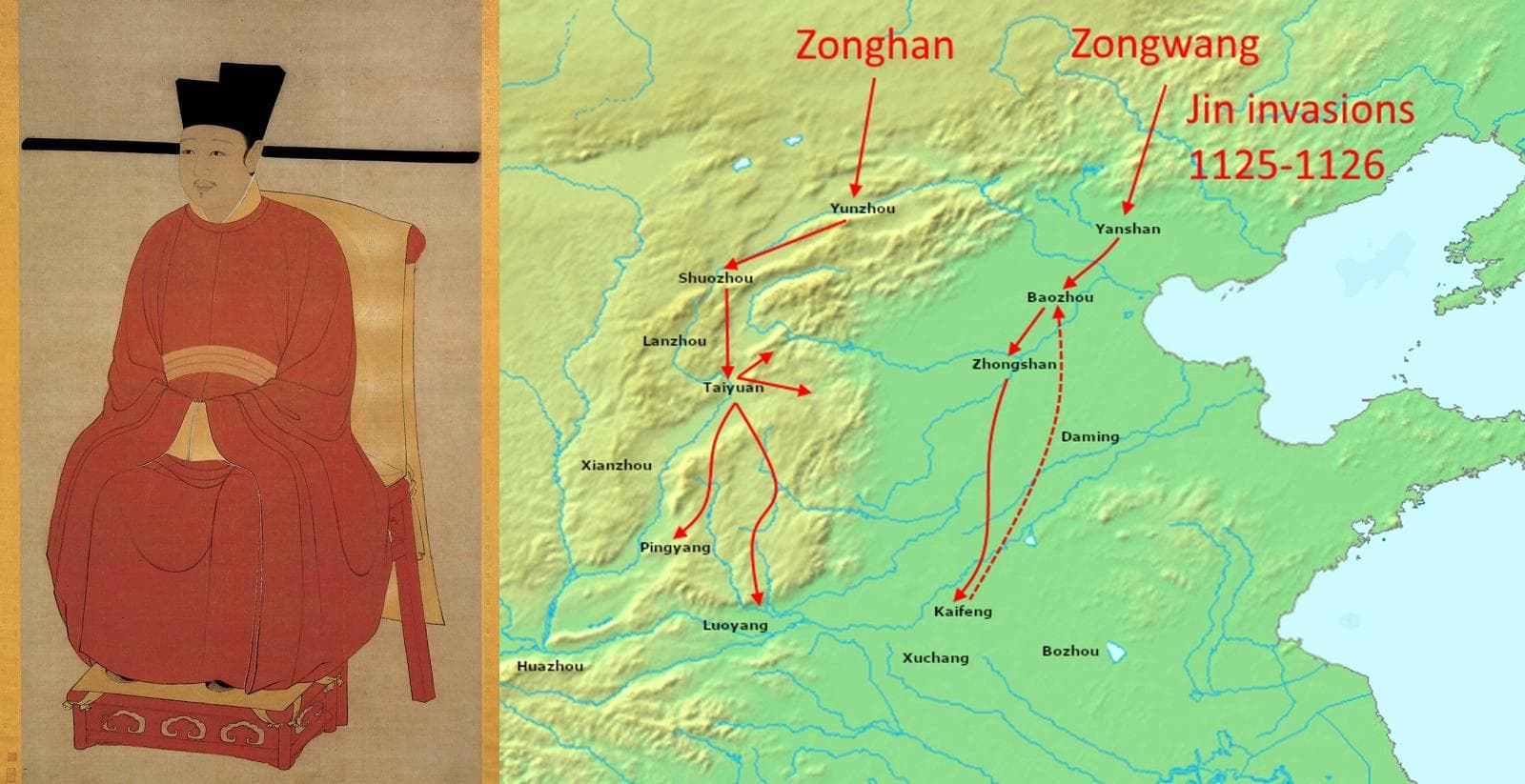
Left: a portrait of Emperor Huizong of Song. Right: Jin invasions of Song, 1125-1126.
Emperor Huizong, witnessing the weakening of Liao due to attacks from the emerging Jin Dynasty (金朝, not to be confused with the Jin Dynasty 晋朝, 266-420 CE), sent envoys to establish an alliance with Jin in 1120. Their joint plan was to attack Liao: Jin forces would capture Liao's Zhongjing (中京, today's Ningcheng in Inner Mongolia, 内蒙古宁城县), while Song forces would target Nanjing (南京, today's Beijing, 北京) and Xijing (西京, today's Datong in Shanxi, 山西大同). The agreement was that after defeating Liao, the territory of Yanyun (燕云) would be returned to Song, and the annual tributes to Liao would be redirected to Jin. This was known as the Alliance Conducted at Sea (海上之盟).
Following this agreement, Jin successively captured Liao's Shangjing (上京), Zhongjing and Xijing. Meanwhile, Song was preoccupied with suppressing Fang La's rebellion and only launched attacks on Liao's Nanjing starting in 1122, which ended in disastrous defeats. To conceal their failure, Tong Guan (童贯) secretly arranged for Jin forces to attack Nanjing. As a result, Jin forces breached the Great Wall and captured Nanjing. In 1123, Jin's Emperor Taizu (金太祖) took over Nanjing and allocated provinces under Nanjing to Song after taking away its population.
After the death of Jin's Taizu, his successor, Emperor Taizong (金太宗), dispatched two armies in October 1125 to invade Song. In December, Song's defending general holding Nanjing surrendered to Jin, allowing Jin forces to advance southward and eventually besiege Kaifeng. Emperor Huizong panicked and immediately abdicated in favor of his son, Emperor Qinzong (宋钦宗).
Emperor Qinzong's indecision between war and peace led to uncertain responses. Song's initial resistance succeeded, and Jin forces retreated north in February 1126. However, they launched another attack in August, reaching Kaifeng. Emperor Qinzong negotiated for withdrawal through tributes instead of preparing for resolute resistance.
In November, Jin forces surrounded Kaifeng again, and despite demands for resistance by the people, the city fell due to Song's surrender policy. In February 1127, Emperor Qinzong was dethroned and reduced to a commoner. His father, Emperor Huizong, was forced to move to Jin's camp. In March and April, Jin forces captured Emperor Huizong, Emperor Qinzong, their consorts, royal family members, and court officials totaling over three thousand individuals. The city of Kaifeng was looted. This event was known as the Jingkang Incident or Humiliation of Jingkang (靖康之耻), marking the end of the Northern Song Dynasty.